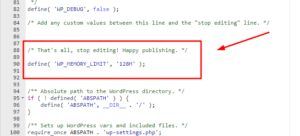Choosing the right web hosting provider is crucial for the success and performance of your website. As a web developer, it’s essential to understand the key factors to consider when selecting a hosting service. This blog post presents a list of dot points highlighting the essential aspects of web hosting to help you make informed decisions.
- Server Reliability and Uptime:
- Look for a hosting provider with a strong track record of server reliability and uptime.
- Aim for at least 99.9% uptime to ensure your website remains accessible to visitors.
- Scalability and Resource Allocation:
- Consider your website’s current and future resource requirements.
- Ensure the hosting provider offers scalable plans to accommodate increased traffic and resource demands.
- Assess resource allocation options such as CPU, RAM, and storage to meet your website’s needs.
- Performance and Speed Optimization:
- Check if the hosting provider utilizes high-performance hardware, such as SSD storage.
- Look for features like content delivery networks (CDNs) and caching mechanisms to improve website loading speed.
- Consider server location to minimize latency and serve your target audience efficiently.
- Security Measures:
- Evaluate the hosting provider’s security features, such as firewalls, DDoS protection, and malware scanning.
- Look for SSL certificate support to enable secure communication with visitors.
- Assess backup options and disaster recovery plans to ensure data protection.
- Technical Support and Customer Service:
- Ensure the hosting provider offers reliable technical support, preferably 24/7.
- Check if support channels, such as live chat, email, or phone, are available.
- Look for a provider with a reputation for responsive and knowledgeable customer service.
- Control Panel and User Interface:
- Assess the hosting provider’s control panel options (e.g., cPanel, Plesk) for managing your website and server settings.
- Consider a user-friendly interface that simplifies routine tasks like domain management, file uploads, and database administration.
- Pricing and Contract Terms:
- Compare hosting plans based on the features, resources, and support provided.
- Be mindful of any hidden costs, renewal fees, or bandwidth limitations.
- Evaluate contract terms, including refund policies and scalability options.

- Website Backup and Restore:
- Verify if the hosting provider offers regular backups of your website data.
- Understand the backup frequency, retention period, and ease of restoring backups.
- Compatibility and Integration:
- Consider your website’s technical requirements, such as programming languages, databases, and frameworks.
- Verify that the hosting provider supports the necessary technologies (e.g., PHP, MySQL, Node.js) for your website.
- Reputation and Reviews:
- Research the hosting provider’s reputation and read reviews from other users.
- Look for testimonials, ratings, and feedback on their service quality, reliability, and customer satisfaction.
Conclusion: Selecting the right web hosting provider is critical to ensure optimal performance, reliability, and security for your website. By considering the factors mentioned in this dot point list, web developers can make informed decisions that align with their website’s specific needs and goals. Remember to thoroughly research and compare different hosting options before making a final decision to ensure a seamless hosting experience

